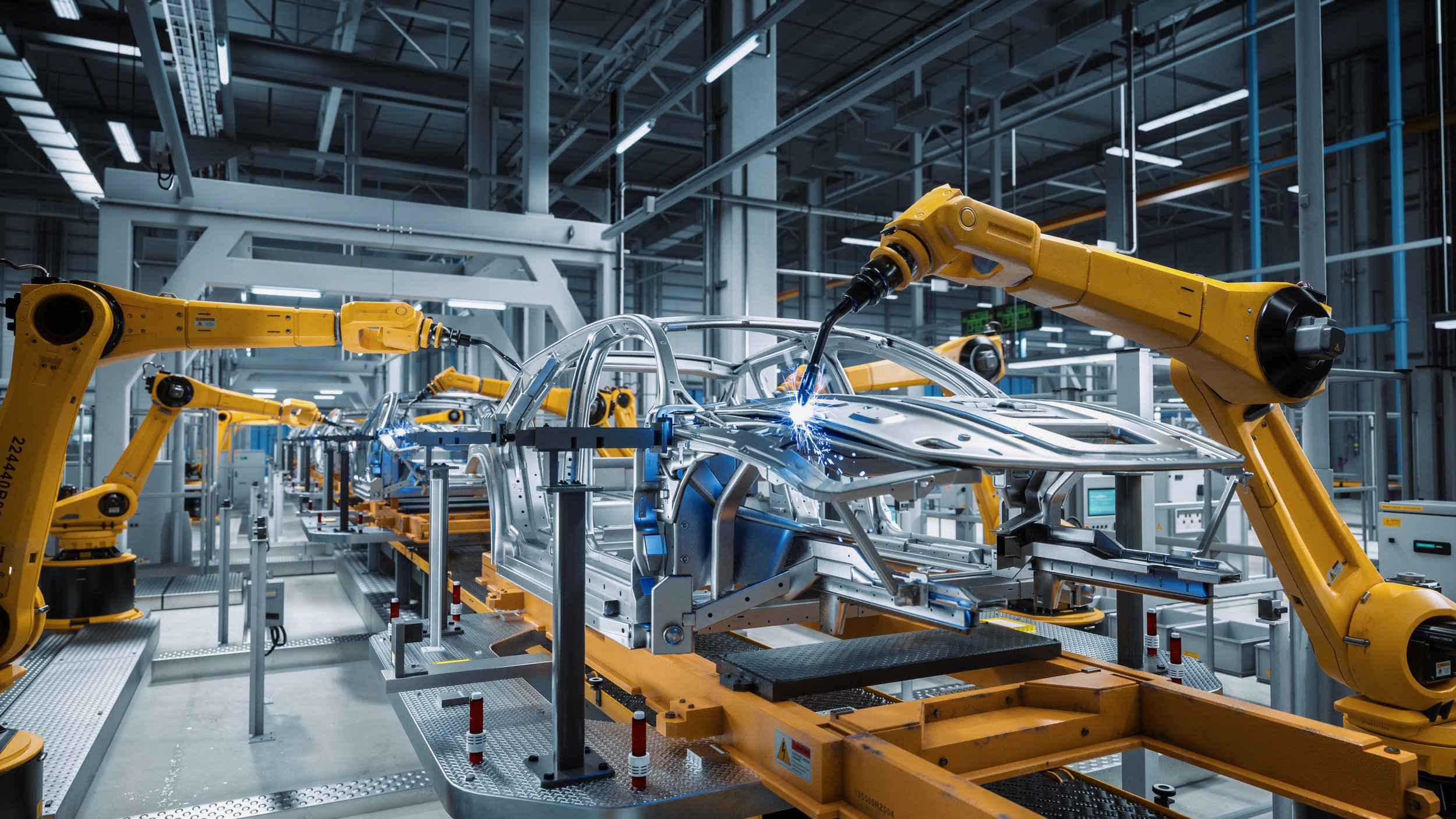Develop a Digitalization Strategy that Becomes Effective in Your Factories
The key for an effective global digital transformation of all your factories & the E2E supply chain is the right balance between corporate standards & flexibility for local projects
Until now, it has been possible to set up and implement large IT projects such as an ERP or CRM introduction centrally - the individual sites have played a rather subordinate role. In contrast, technologies and systems at the level of automation technology were usually selected and implemented on a project- & plant-specific level to meet individual local requirements without taking economies of scale & synergies across factories too much into account.
The Industrie 4.0 transformation follows different rules: At its core we see the convergence of the digital & physical world, the integration of OT & IT, and the combination of technology with a transformation of the entire way of working. Both, a purely top-down approach and an exclusively decentralized approach with maximum flexibility for the factories have no chance to be successful. In addition, the great importance of the area of culture & organizational development cannot be ignored. The special challenges of digital transformation in production must be met with the appropriate strategic approaches.
Our principles
-
In certain areas, a global standard is essential. This includes IT architecture & IT security, data models for globally used data as well as low-code platforms on which apps, workflows, dashboards can be developed flexibly. By creating these minimum standards, all subsequent projects in the factories will significantly be accelerated, the quality of the solutions will increase and the management of data will be consistent & secure.
-
The best digitization strategy always incorporates the status quo and the needs of the factories. Our experience shows that this requires vertical channels that work both ways. The good news is that you can often leverage already existing structures (e.g. Operational Excellence & IT organizations).
-
A global team needs to manage the whole program. Here, it is key to reduce global standards & limitations to the minimum and to consider the global team as an enabler for the factories to address their requirements, put important topics on the global agenda & ensure the support & funding for the program by the top management.
-
This is where larger companies can show their strengths: For technologies, software and methods relevant to various factories globally selected solutions can be provided. This creates synergies that can significantly increase the speed of implementation. In addition, the factories can access central resources for IT support and training.
Dr.-Ing.
Tobias Harland
Partner
tobias.harland@onward.partners
+49 241 412522-10
Client Cases
What we do
Togehter with your team we...
...develop a governance concept & the organizational structure
...train ambassadors to become active throughout the organization
..develop standards for the IT architecture & data models for the plants
...provide an overarching transformation framework for all factories with our maturity model
…define the roll-out strategy to your factories incl. a “lighthouse” approach
...offer software to centrally track the current progress of the plants.
Together we keep your Digital Transform under control!
NEW Whitepaper:
Start your strategy process with our Transform@Scale workshop
-
Ramp-up a globally effective transformation program
Align all global stakeholders of the program
Outline a clear narrative for the transformation program
-
Clear answers to:
Why do you launch the program and what is its purpose?
How are you going to achieve this purpose?
What are the important focus areas of the transformation program
captured in a communication slide-deck
-
Option 1: 2-days on-site workshop at your facilities of choice (8:30 - 17:00 for both days)
Option 2: 4 half-day remote workshops via MS-Teams
-
Target group: Transformation & digitalization managers / groups, who are responsible for multiple factories
Further participants: global stakeholders of the digitalization program (SteerCo of the program, COO, global engineering, global IT, global OpEx/Lean,…)





